
"Donald Trump Proposed The Biggest American Tax Hike Ever"
New York (CNN)Donald Trump is vowing to drastically cut income taxes for millions of Americans across the wealth spectrum while casting aside loopholes popular on Wall Street.
"It will provide major tax relief for middle income and for most other Americans. There will be a major tax reduction," Trump said Monday at a press conference at Trump Tower in New York as he unveiled his plan to revamp the tax code. "It'll simplify the tax code, it'll grow the American economy at a level that it hasn't seen for decades."
The highly anticipated tax plan comes as Trump is being pressed to provide more details about how his administration would govern.
He unveiled a provision designed to help families that draw the smallest paychecks. Individuals that make less than $25,000 (and $50,000 for married couples) would pay no income taxes under Trump's plan.
One of the biggest beneficiaries appears to be families that draw the smallest paychecks. Individuals that make less than $25,000 (and $50,000 for married couples) would pay no income taxes under Trump's plan.
"They get a new one page form to send the IRS saying, 'I win,'" reads Trump's tax plan, referring to those households who will pay no federal income taxes.
But many of those families already pay no federal taxes. Roughly 45% of American households will not owe any federal income taxes this year under the existing tax code, according to Tax Policy Center estimates. Trump said his plan will ensure a slightly larger share -- more than 50% of households -- pay no federal income tax.
"Some of what Mr. Trump has done in his press conference is just sell us on one of the better features of what our income tax already does," said Alan Cole, an economist at the Tax Foundation. "It will probably add to the number of people who don't have to pay any income tax. That was already true of many people and he's just expanding the number of people."
Meanwhile, the proposal would also be a boon for the wealthiest Americans like Trump -- the top bracket includes individuals making $150,001 and more and couples making $300,001 and more -- who would pay an income tax rate of 25%. That's a dramatic cut from the current top rate of close to 40%.
The tax cuts for top earners could open Trump up to charges of hypocrisy. The real estate magnate has surged to the top of the polls by touting a populist tone, lamenting that wealthy people like himself should pay more.
Asked at Monday's press conference how his proposal would affect his own tax rate, Trump dodged the question, saying: "We're reducing taxes, but believe me, there will be people in the very upper echelon that won't be thrilled with this."
He also declined to say how much taxes he currently pays, only saying, "I fight like hell to pay as little as possible."
Perhaps the most pressing question that Trump must answer is how he would raise enough revenue to offset his plan's deep tax cuts, though he insisted Monday that his proposal would not add to the country's debt or deficit.
The candidate says he would make up for the difference in a number of ways: killing certain deductions for the rich and creating incentives for U.S. companies to bring back cash currently held overseas, thereby boosting growth at home.
Roberton Williams, a senior fellow at the Tax Policy Center, said Trump's claim that his plan would be revenue neutral was "hard to swallow."
"On the corporate side the tax cut is very large. On the individual side it's very large," Williams said. "There just aren't enough tax breaks out there to make this work."
Trump's tax plan broadly mirrors that of one of his main rivals: Jeb Bush.
Bush's proposal released this month also reduces the number of income tax brackets -- to three from the current seven. The highest tax bracket under the former Florida governor's plan is 28%, and the lowest is 10%. Bush also proposed lowering the corporate tax rate from 35% to 20% -- another popular idea among conservatives. Trump would go even further, lowering the rate to 15%.
Trump's GOP rivals, including Bush and Florida Sen. Marco Rubio, have clear objectives for their tax plan. But Trump's is harder to parse, said Republican economist Douglas Holtz-Eakin.
Bush wants to spur growth and make it tougher to game the tax system, while Rubio wants to boost growth and aid families, he said.
As for Trump, "I don't know what he wants," Holtz-Eakin said. "It looks like bits and pieces of other people's plans strung together."
Like Bush, one loophole Trump would target is the preferential treatment for carried interest, which is a share of profits paid to investment managers.
Since launching his White House campaign in June, Trump has made sweeping attacks on hedge fund managers who are paid in carried interest.
Trump, who claims that his personal assets are valued at more than $10 billion, frequently makes the distinction between investors who work in real estate and those on Wall Street. Hedge fund managers, he often says, fall in the category of special interests backing some of his well-connected and best-funded rivals.
"I know them. They all are supporting Jeb Bush and Hillary Clinton," Trump told CNN at a campaign stop in Nashville, Tennessee, last month. "They make a lot of money and a lot of it is luck. They pick a stock and all of a sudden they make a lot of money. I want the hedge fund guys to pay more taxes."
Still, the plan might not be too tough on Wall Street. Since Trump's proposal would slash the income tax rate across the board, taxing carried interest as regular income under Trump's plan would mean investors still pay far less than what they would if the carried interest loophole were done away with under the current tax code.
The tax rate of hedge fund managers is a favorite political target for the 2016 presidential candidates.
"We will treat all noninvestment income the same, so unless you stake capital in an investment, you won't be able to claim the capital-gains tax rate on your market gains," Bush's tax proposal said.
It's also popular rallying cry for the Democratic candidates.
Former Secretary of Hillary Clinton has been hitting Wall Street tax breaks since the first days of her campaign, as she's faced pressure from progressive Democrats to embrace a more populist agenda. Antagonism towards Wall Street is a central message of Clinton's rivals like Vermont Sen. Bernie Sanders and former Maryland Gov. Martin O'Malley.
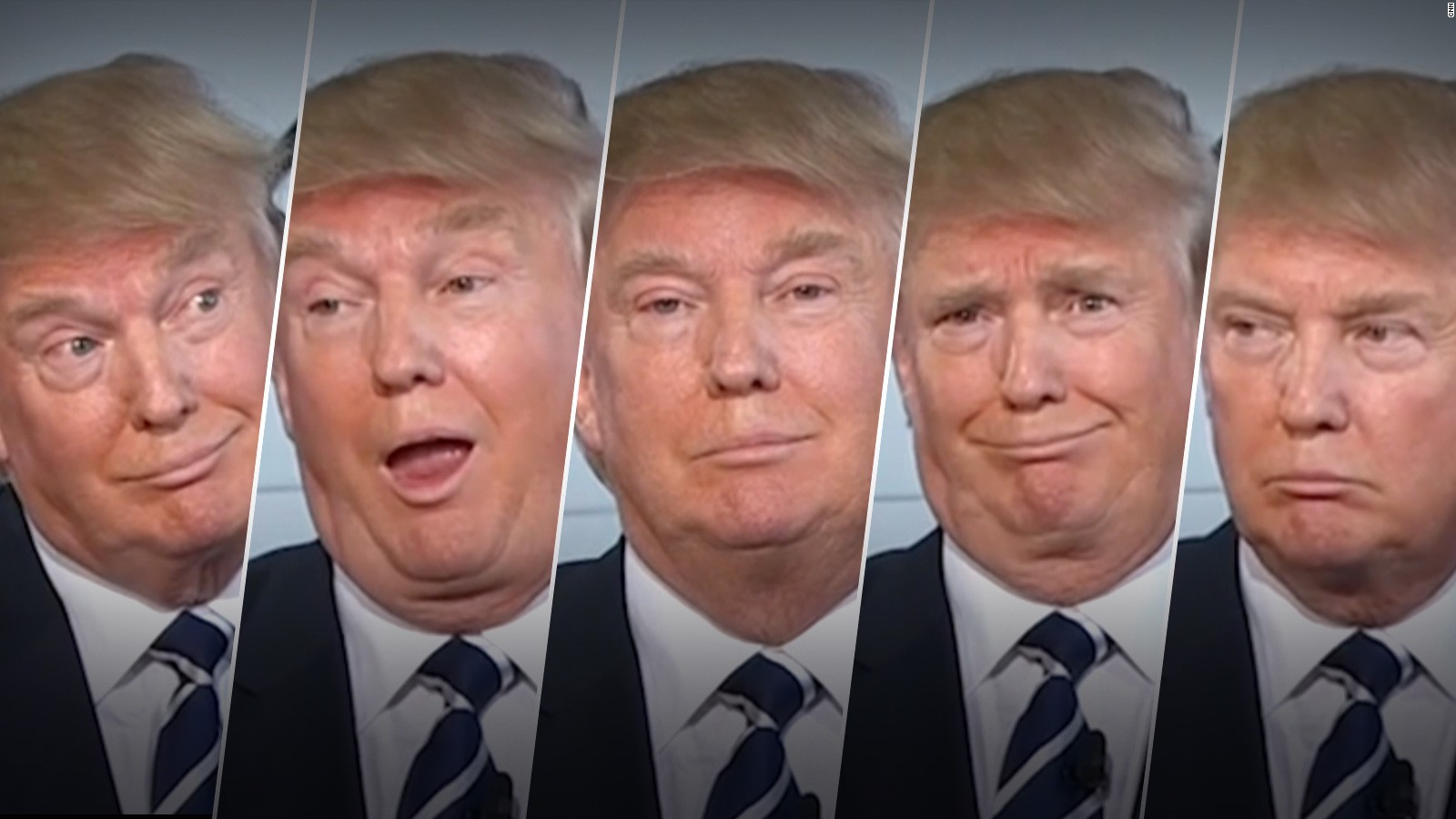







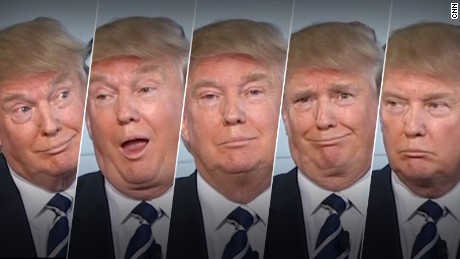
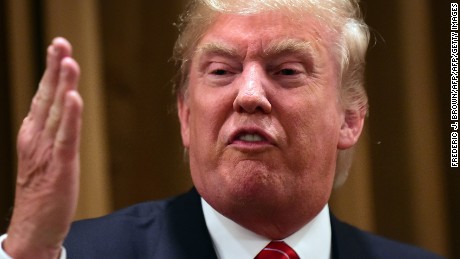






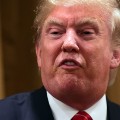
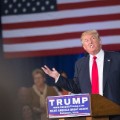


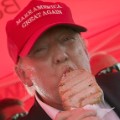
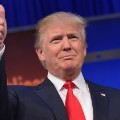
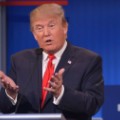



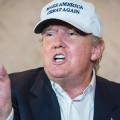
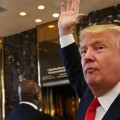

No comments:
Post a Comment